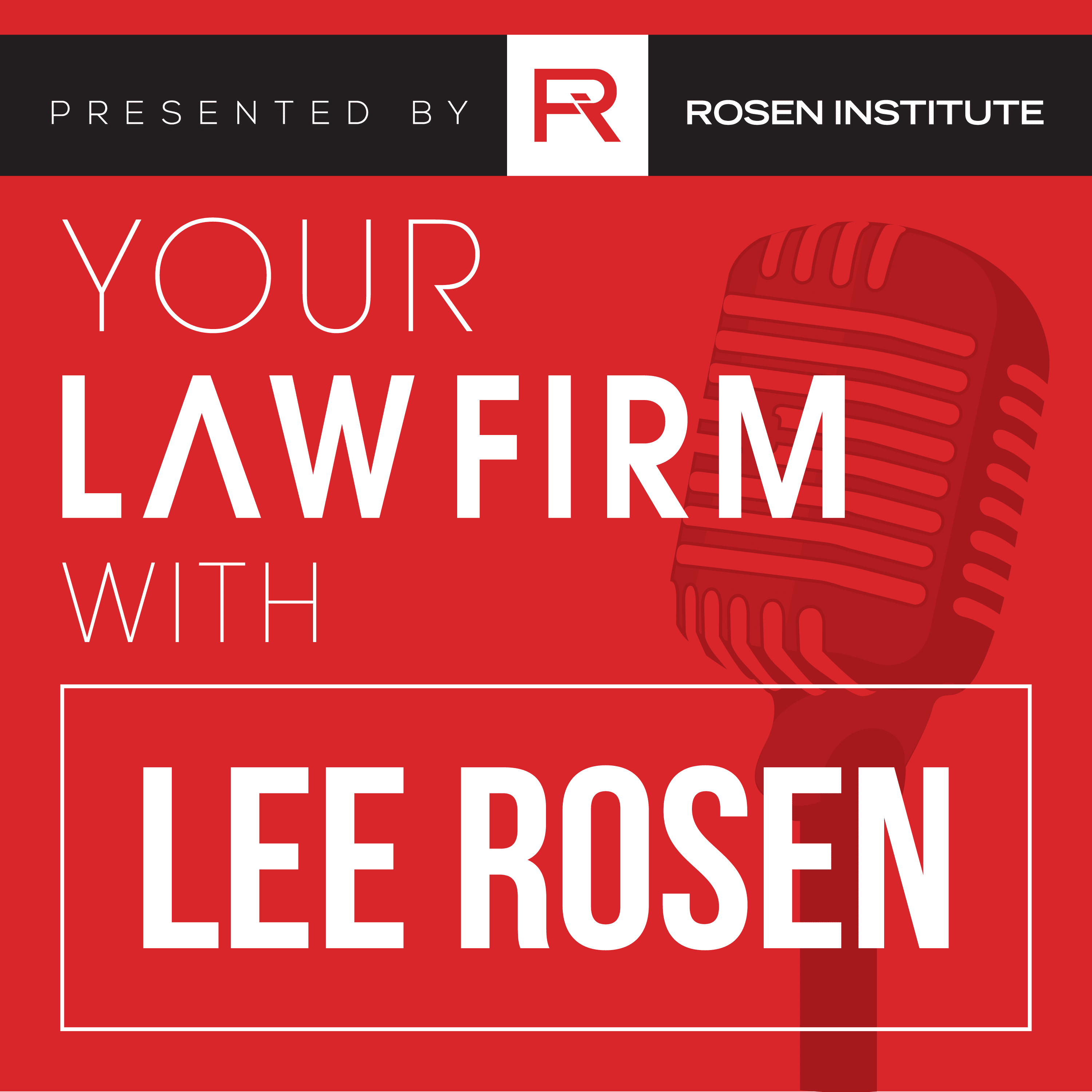

Your Law Firm - Lee Rosen of Rosen Institute
Lee Rosen
Lawyer Lee Rosen speaks to aspiring entrepreneurial and tenured law professionals on law practice management, marketing, technology and finance, increasing your revenues and helping you implement time saving changes
Episodes
Mentioned books

Nov 19, 2020 • 17min
Workations and Digital Nomad Lawyers During Covid
Working remotely has become the norm over the last several months. But what about working really remotely - foreign country remotely? I've been doing it for years, and COVID has changed the landscape in terms of both the practicality and ethics of moving from place to place. Is working remotely (not just from home) still a viable option?

Nov 12, 2020 • 7min
The Most Crucial Holiday Party Ever
Back in the day, like six months ago, holiday events were a dime a dozen. You couldn't stand out from the crowd if you tried. Holiday parties were all pretty much the same. Not anymore.

Nov 5, 2020 • 8min
What Happens When the Law Firm Flywheel Starts to Wobble
Every firm needs a system for updating their systems. In a perfect world, system updating will happen spontaneously. The team is using the systems documentation to get the work done so they notice when things need adjusting due to a change. They pull up the documentation and update the text, or audio, or video. Just like that - things are back in working order.

Oct 29, 2020 • 7min
When You Grow, Everything Breaks
It's entirely reasonable that a business built for one person breaks when it gets to three. It's even more reasonable that a business built for three people breaks when it gets to ten. It's obvious that it's going to happen once someone points it out. It's just tough to see it when it's your life and you're just trying to survive the day.

Oct 22, 2020 • 10min
How You Can Get Noticed in the World
Maybe there was a time when hanging an "Attorney at Law" sign above your courthouse-adjacent office door worked to get clients. But, if there was such a time and place I missed it. I started practicing law a long time ago and even then we were beyond the hanging out a shingle days of yore. You need to take action if you want people to start looking for you, and no matter what you do to create awareness, it'll be more effective if you target your efforts at a small group of people. That's true because it takes a while for people to notice and remember you. They need more than one interaction. You're going to have to hammer your existence home by repeatedly interacting with the same group of humans.

Oct 15, 2020 • 12min
Standing Out From the Crowd
If you're saying things in your marketing that another firm could say, you might as well not bother. Those things are invisible. Your pages filled with "excellent, experienced, and affordable" are blank to the reader. You might as well leave in the "lorem ipsum" text and stock photos that came with the theme. In fact, you might as well just leave in the fake address and "Business name here" in the title bar. There's no there there. They say nothing. They are erased in the minds of prospective clients.

Oct 8, 2020 • 19min
Are You Going To Be Locked Out of Your Own Data?
Maybe I'm just paranoid because I travel constantly. I worry about our technology and data getting lost or stolen. I've spent considerable time thinking through what would happen if we left our things in a taxi or circumstances resulted in our losing our devices.

Oct 1, 2020 • 8min
The First Time is the Most Important Time
If a customer vomits in your restaurant, you'd better clean it up as fast as physically possible. There's zero chance you're selling another sushi platter until the sight, sound, and smell of the vomit are gone.

Sep 24, 2020 • 10min
Should You Pay Super Lawyers?
These publications aren't a scam. I don't think they lie to us or cheat us - they just prey on our egos. They're transparent about what they're doing, how they're doing it, and who they're doing it too. Super Lawyers is part of Thomson Reuters so I'm sure they've got great lawyers keeping them out scam territory and firmly in the poking lawyer egos into pulling out credit card territory.
They take your money and they massage your ego. I like a good ego massage. It's like flying business class. The flight attendant knows my name, offers me slippers, and gives me hot nuts. What's not to like?

Sep 17, 2020 • 9min
Your Solution to Law Partner Analysis Paralysis
There are plenty of things partners can do together. They can each contribute to the hiring process providing candidate insight and observations. Some partners are better at supervising the accounting. Some are great with technology. Everyone should contribute, but the decision-maker should decide. Contributing is different than deciding.


